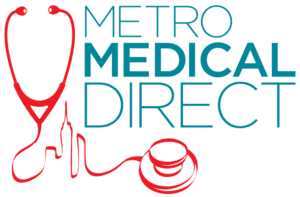Maintaining Sobriety During the Holiday Season: A Guide for Professionals in Recovery
The holidays are a time of joy and celebration, but for those in recovery, they can also bring stress and potential triggers. For professionals, this season can be especially challenging, with additional work responsibilities, social gatherings, and family obligations. Maintaining sobriety amidst these pressures requires planning, awareness, and a commitment to self-care.
Whether you’re managing a home detox or dealing with past struggles with alcohol, opioids, benzodiazepines, or other substance use disorders, taking proactive steps during the holiday season can help prevent relapse. Here are some common risk factors to be mindful of, along with tips for navigating them.
Common Risk Factors for Substance Use Relapse
- High Stress Levels
What Happens: Stress can overwhelm coping mechanisms, tempting individuals to seek relief in old, unhealthy habits.
Examples: Work deadlines, financial stress, and family conflicts.
Prevention Tip: Develop a stress-management plan that includes activities like exercise, mindfulness, and speaking with a counselor regularly.
- Environmental Triggers
What Happens: Situations or places associated with past substance use can reignite cravings.
Examples: Visiting a bar, being around people who still use substances, or returning to old neighborhoods.
Prevention Tip: Avoid high-risk environments whenever possible and seek out supportive, substance-free settings.
- Negative Emotional States
What Happens: Feelings of anger, loneliness, or sadness can create a heightened risk for relapse.
Examples: Grieving a loss, feeling isolated, or experiencing rejection.
Prevention Tip: Be aware of emotional triggers and have a plan in place, such as reaching out to a support group or therapist.
- Lack of Support System
What Happens: Without a strong support network, staying on track in recovery can feel isolating.
Examples: Not attending recovery meetings, losing contact with sober friends, or strained family relationships.
Prevention Tip: Build a solid support network by attending peer groups like AA or NA, maintaining connections with positive influences, and considering counseling if needed.
- Overconfidence in Recovery
What Happens: Thinking you’re “cured” can lead to risky behaviors and neglecting essential recovery steps.
Examples: Attending events with alcohol, stopping therapy or medication, and disregarding recovery routines.
Prevention Tip: Stay humble and realistic about the ongoing journey of recovery. Commit to your treatment plan and stay vigilant.
- Physical Illness or Pain
What Happens: Physical discomfort can make it tempting to use substances for relief.
Examples: Chronic pain, prescription misuse, or turning to alcohol for pain relief.
Prevention Tip: Work closely with healthcare providers for pain management, exploring non-addictive options when possible.
- Peer Pressure
What Happens: Social pressure can make it hard to say no, especially in holiday gatherings.
Examples: Friends or colleagues encouraging “just one drink.”
Prevention Tip: Practice refusal skills and have an exit plan for situations that feel too challenging.
- Poor Sleep or Diet
What Happens: Physical health impacts mental resilience; neglecting self-care can lead to vulnerability.
Examples: Skipping meals, insomnia, or poor nutrition.
Prevention Tip: Create a routine for balanced meals and sufficient rest to support overall wellness.
- Lack of Structured Routine
What Happens: Unstructured time can lead to boredom, loneliness, and increased risk of relapse.
Examples: Lack of daily activities, unemployment, or disengagement from hobbies.
Prevention Tip: Set a daily schedule that includes meaningful activities like work, exercise, and social interactions.
- Co-Occurring Mental Health Conditions
What Happens: Untreated mental health issues like anxiety or depression can heighten relapse risk.
Examples: Unmanaged symptoms or self-medicating.
Prevention Tip: Seek integrated care for both mental health and substance use disorders to maintain stability.
Practical Tips for Sustaining Sobriety
- Know Your Triggers: Keep a personal journal to identify and understand your triggers. Awareness is the first step in managing them.
- Build Coping Strategies: Engage in activities that promote relaxation and resilience, like yoga, meditation, or creative hobbies.
- Stick to Treatment: Consistently attend therapy, follow medical advice, and take prescribed medications.
- Reach Out for Help: If you’re feeling vulnerable, contact a sponsor, counselor, or trusted friend to discuss your feelings.
- Stay Educated: Continue learning about addiction and recovery to stay informed and prepared for the challenges along the way.
Support Resources
- Hotlines: The National Helpline (SAMHSA) – 1-800-662-HELP (4357)
- Support Groups: Alcoholics Anonymous (AA), Narcotics Anonymous (NA), SMART Recovery
- Recovery Apps: Consider using apps like Sober Grid or WEconnect for additional support.
By being mindful of these risk factors and taking intentional steps, you can navigate the holiday season with confidence and maintain your sobriety. Remember, self-care isn’t a luxury—it’s essential for staying healthy and resilient in your recovery journey.
